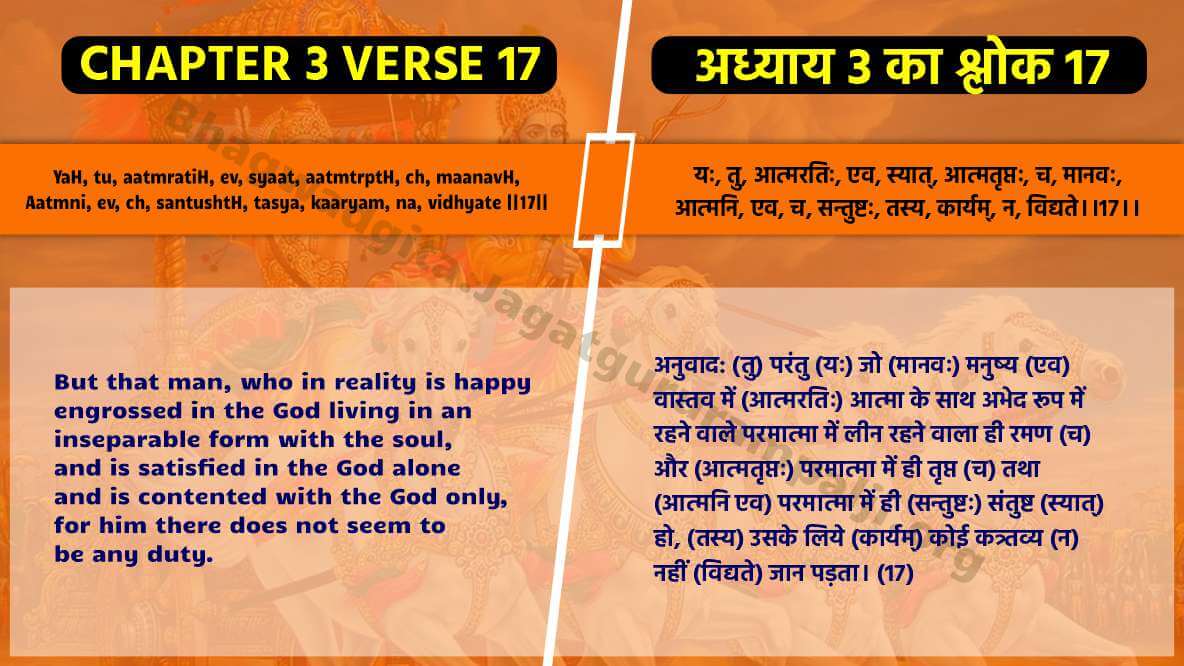
YaH, tu, aatmratiH, ev, syaat, aatmtrptH, ch, maanavH,
Aatmni, ev, ch, santushtH, tasya, kaaryam, na, vidhyate ||17||
Translation: (Tu) but (yaH) that (maanavH) man (ev) in reality (aatmaratiH) one who is happy engrossed in the God living in an inseparable form with the soul (ch) and (aatmtrptH) satisfied in the God only (ch) and (aatmni ev) in the God only (santushtH) contented (syaat) is, (tasya) for him (karyam) any duty (na) not (vidhyte) seems to be. (17)
Translation
But that man, who in reality is happy engrossed in the God living in an inseparable form with the soul, and is satisfied in the God alone and is contented with the God only, for him there does not seem to be any duty.
यः, तु, आत्मरतिः, एव, स्यात्, आत्मतृप्तः, च, मानवः,
आत्मनि, एव, च, सन्तुष्टः, तस्य, कार्यम्, न, विद्यते।।17।।
अनुवाद: (तु) परंतु (यः) जो (मानवः) मनुष्य (एव) वास्तव में (आत्मरतिः) आत्मा के साथ अभेद रूप में रहने वाले परमात्मा में लीन रहने वाला ही रमण (च) और (आत्मतृप्तः) परमात्मा में ही तृप्त (च) तथा (आत्मनि एव) परमात्मा में ही (सन्तुष्टः) संतुष्ट (स्यात्) हो, (तस्य) उसके लिये (कार्यम्) कोई कत्र्तव्य (न) नहीं (विद्यते) जान पड़ता। (17)
